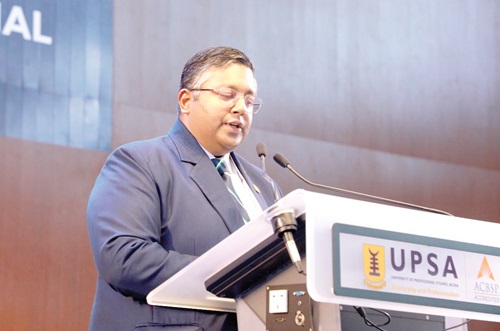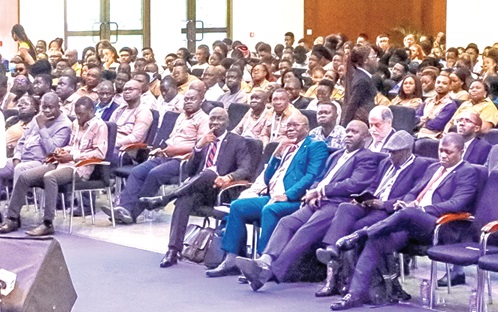
Confab on higher education in Africa held in Accra
An international conference to improve the quality of higher education in Africa has been held at the University of Professional Studies, Accra.
Dubbed; The 3rd Quacquarelli Symonds (QS) Africa Forum, the two-day event brought together educationalists, policy makers, heads of universities and other stakeholders across the continent to deliberate on pertinent issues affecting higher education.
It is on the theme: “Empowering Africa's youth: Integrating entrepreneurship, future skills and AI/technology in education for a sustainable future.”
The QS is an international education firm that provides advisory services to institutions of higher learning and also conducts the renowned QS World University Rankings that shows the best performing universities in different areas.
It is the first time the country is hosting the event.
Focus
The QS Executive Director for the Africa and Middle East Region, Dr Ashwin Fernandes, said the focus on the youth in this year’s event was to acknowledge their potential and the significant role they played in the development of the continent.

He said although Africa had enormous natural and human resources, the continent was still confronted with challenges in accessing good education.
Dr Fernandes said this was further exacerbated by the youthful population of the continent who were yearning for opportunities to develop their skills and build a better future.
“As of 2024, Africa has the youngest population in the world. Over 60 per cent of Africa’s population is under the age of 25, which is approximately 800 million young people out of the total population of 1.4billion,” he added.
He, therefore, said there was the need to build the capacity of educational institutions on the continent to grow students’ capacity and technical ability to solve problems through critical thinking.
“We also need to figure out how to make high quality education cheaper and easier for everyone, no matter their origin or financial status,” the executive director said.
Entrepreneurship
Dr Fernandes underscored the importance of providing the needed skills and an enabling environment to build the next generation of African entrepreneurs who would lead the continent into sustainable development.
“We must provide our students with future skills such as digital literacy, data analysis and coding, which are required in the 21st Century employment market.
“Together, we can make a difference, together we can build a system that empowers African youth and unleash their potential,’ he added.
Youth-centered initiatives
The Vice-Chancellor of UPSA, Prof. Abednego F.O Amartey, said the youth were the future leaders of the continent, and therefore, there was the need for youth centred policies and initiatives that would create the necessary conditions for them to thrive.
Using UPSA as an example, he said the institution had over the years created a learning environment that allowed students to succeed in the larger world.
“Our teaching and learning approaches are designed to foster critical thinking, creativity and a deep understanding of the inter-connectedness of economic, social and environmental sustainability,” he added.
Writer’s email:
